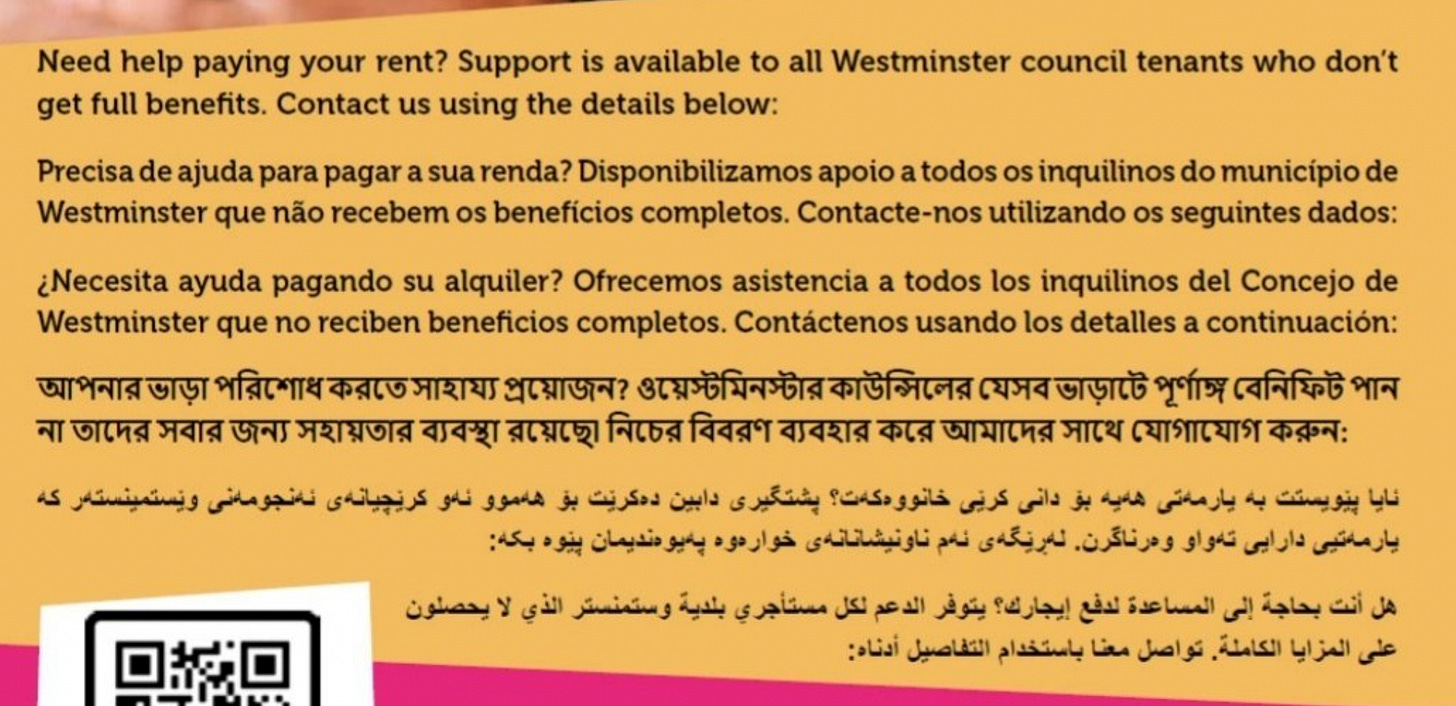Will the last young professional to leave Britain turn off the lights?
'Get out as early as you can, And don’t have any kids yourself’
Earlier this week Westminster Council tweeted and deleted a video announcing a new housing scheme, a ‘more transparent’ system that was being advertised with translations in Arabic, Bengali, Spanish and French.
The City of Westminster, as even those unfamiliar with Britain will probably guess, is among the most expensive places in the country, indeed in Europe. Per capita, it is the second richest of London’s 32 boroughs, and the average flat there is well over £1m. The typical rent for a 2-bedroom flat is £3,200 per month, but with the golden ticket of social housing this can be as low as £677.
Among the famous recent residents of Westminster are the family of Jihadi John of the decapitation combo the ISIS Beatles; they had been kicked out of Kuwait for supporting Saddam Hussein’s invasion and allowed to move to Britain and given subsidised housing in one of the country’s most expensive areas. Despite apparently being in fears of their lives in Kuwait, the father would regularly travel back there.
The issue of social housing allocation has gained particular traction in the past year, with increasing awareness that almost half of all subsidised housing in London is headed by someone born abroad; and while some try to justify this by pointing out that many have since become naturalised Britons, this sophistry sidesteps the issue about whether new arrivals financially benefit the country.
But it also raises deeper questions about the social contract; after all, if people don’t feel that the welfare state is there to help people like them, that system will collapse. An international welfare state is a contradiction in terms, especially in areas like housing which are expensive and, by definition, limited.
Foreign-allocated social housing is not only costly in itself but also aggravates the problems faced by those renting privately in the restricted number of available properties. This week it was revealed that London’s average rent is now £2,206 a month, up 11.6% in one year, a disastrous and unsustainable figure driven both by planning restrictions and migration. This is reminiscent of the conditions of late Tsarist Russia, yet Britain’s young renters will not start a revolution – instead they will do what the young and ambitious have often done, and leave.
While immigration will remain a major issue during this Parliament, emigration will start to become more salient in 2025. The total numbers won’t be huge, or at least nowhere large enough to affect sky-high net migration figures, but they will involve a large number of the most dynamic and educated. A lot of young people are going to start leaving Britain – fed up with a social contract which expects them to give everything, and to get almost nothing in return.
As More in Common’s Luke Tryl recently put it, this social contract is failing for many people: ‘The criminal barrister, who after degree, training, pupillage has to house share with 3 others age 30 for whom having a pet, let alone a child is out of reach and just lost this months savings to replace a snatched phone thinks the British dream is broken as much as other groups.’




